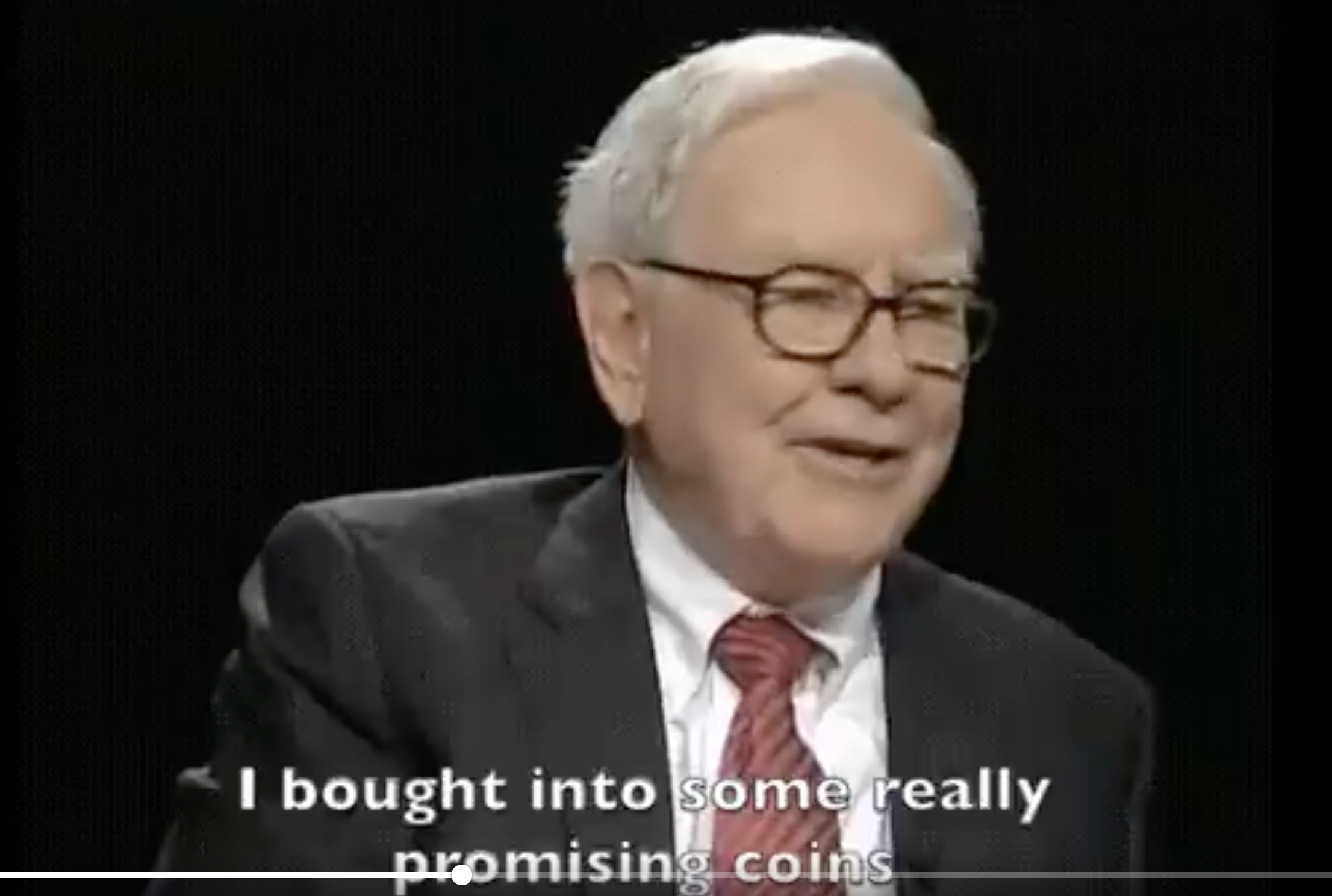Warren Buffett, cryptocurrency guru. Not.

As the largest banking shareholder in America, Warren Buffett certainly knows about bitcoin and if he's not alarmed about the rise of cryptocurrencies, he's hiding it well. A month ago, Buffett's business partner Charlie Munger decided to let the tell the world to avoid bitcoin like the plague. "I think it is perfectly asinine to even pause to think about them," he told reporters. A lot of them appear to have taken Charlie at his word.
Ireland's Sunday Business Post is a decent paper, one I'll happily support by picking up the print edition on Sunday mornings. Its coverage of cryptocurrencies, however, is par for the course in the business press: dismal. Today (21 January), markets editor Ian Guider has a stab at covering bitcoin for the paper, using Warren Buffett's oracular powers as an angle. It's not pretty.
Warren Buffett recently offered some comments on cryptocurrency, saying with near-certainty that they will come to a bad end. He did add that he in fact actually knew nothing about cryptocurrencies, but I think the press was already metaphorically sprinting to the telephone booth, and didn't hear the last bit. In any case, it's highly doubtful that Buffett and Munger are sitting around aggressively trying not to think about cryptocurrencies.
Mr Buffett, through Berkshire Hathaway, is probably the biggest individual investor in American banks. He's certainly the largest shareholder in Wells Fargo and Bank of America, two of the US big four, along with big shares in Mastercard and American Express, along with smaller bank holdings. When Wells Fargo caught fire in mid-air several years ago over a misselling scandal that may yet destroy the bank (see what's happening with South Africa), Buffett stood behind CEO John Stumpf rather than the millions of customers who had been ripped off. Wells Fargo's "cross-selling" approach was company culture, and Stumpf stood behind it, as did Buffett. In the space of a few months, Wells Fargo set fire to its trustworthiness, and it still hasn't recovered from the scandal: prosecutions may still follow. At no point did Buffett criticise the company.
For Mr Buffett to claim he knows nothing about cryptocurrencies is a stretch. In the last few weeks, central banks and commercial banks have been warning "investors" to stay away from cryptocurrencies, which are unregulated, and probably unregulatable - by design. Mr Buffett surely knows that the original conception and development of cryptocurrencies was driven by people fed up with serial bailouts offered to too-big-to-fail banks. He'll also know that developers of the bitcoin protocol resolved to discover a way to evolve from the current financial system, which relies on trusted third party intermediaries, usually banks, to guarantee payments or transfers of value. Bitcoin, for instance, is a protocol that uses mathematical proofs to provide the trust factor previously supplied by a third party. The reward for providing that proof goes to people who use computing power to verify transactions and add new blocks on the blockchain.
Ian Guider admits, half way through his article, that he finds the idea that cryptocurrencies are creating by computer mining "absolutely bizarre". But why not figure it out? A suggestion for any other journalists standing at the gates of the cryptoworld, which is undoubtedly populated by its share of raving fanboys, anarchocapitalists, libertarians, 4chan-ers, mysterious founders who may or may not be one person, along with a vast backing cast including Russian agents claiming that the whole thing was dreamed up the US National Security Agency, and US agents claiming the whole thing was invented by Russian hackers (who were using proxies so as to appear to be Chinese). The whole thing is so amorphous that you can project just about anything onto it.
But here's a couple of suggestions: perhaps start by reading the barely eight page-long white paper written ten years ago under the name of Satoshi Nakamoto? Talk to some people working in the space who understand the technology. Seriously, though, Warren Buffett is the last person in the world to ask.
But maybe soon, he'll change his mind.